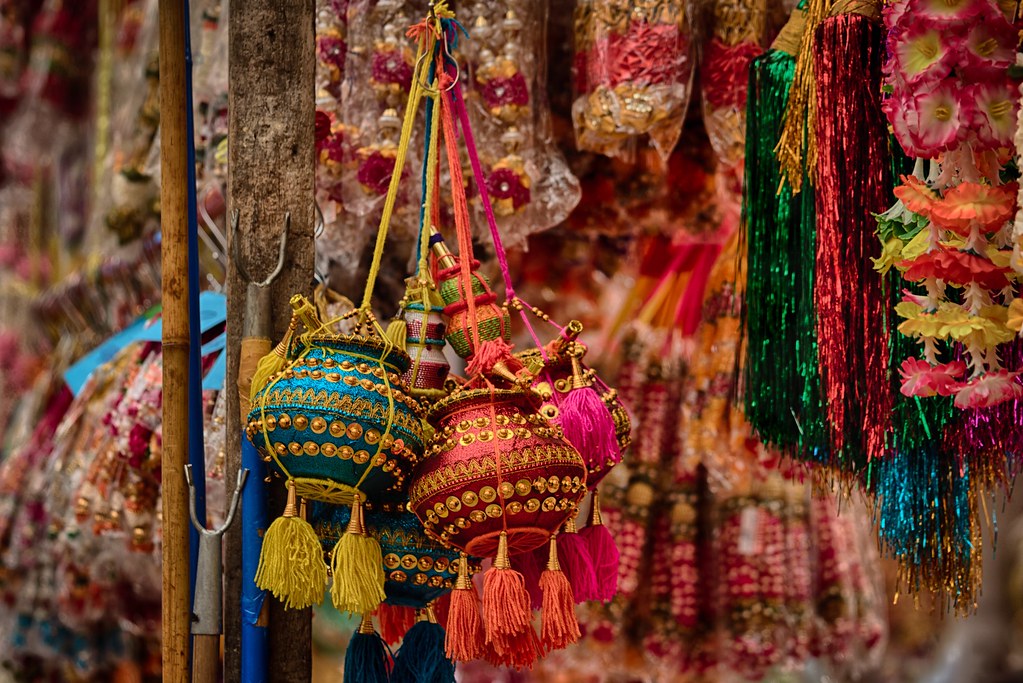A much-needed conversation on India’s soft power strategy sprouted up last month, when the Parliamentary Committee on External Affairs released an extensive report titled India’s Soft Power and Cultural Diplomacy: Prospects and Limitations.
The Committee, throwing light on the shortcomings in India’s efforts, noted three major challenges. One, a budget deficit and the limited funds being allocated substantially for administrative purposes. Two, lack of coordinated approach and communication between the many ministries and institutions, all carrying out individual external outreach activities. Three, the absence of talented individuals and subject matter experts who can serve as cultural managers. This pool of professionals needs to work along with — if not replace — the current bureaucratic structure of the Indian Council for Cultural Relations (ICCR), suggested the Committee.
Addressing these concerns, the Committee also made recommendations to augment the country’s soft power as well as increase the output of the ICCR, the nodal agency responsible for building and strengthening our cultural engagements with the world. These recommendations included restructuring the ICCR and increasing the budget allocated to it; setting up of a joint committee to ensure and oversee coordination between ICCR, Ministry of Sports, Ministry of Tourism and other relevant stakeholders; implementing Yoga certifications and devising country-specific tourism promotion policies. More importantly, the Committee rightly posited the need for a National Soft Power Policy.
CULTURAL BRANDS ENHANCE SOFT POWER
Cultural brands act as soft power ambassadors and offer more tangible and long-lasting avenues to engage with a country’s culture. These brands package and present indigenous wisdom, traditions, and artistic prowess to international markets in the form of products, services or experiences, which can be easily consumed by people. Through a well-conceived branding and marketing strategy, these cultural brands also tell the story of their origin, which in turn creates greater familiarity towards the source country. For instance, luxury brands like Hermes, Dior, and Chanel have positioned France as a global leader in fashion. The country also hosts the highest number of Michelin-star restaurants in the world and was the most visited country in 2018, owing to a robust tourism industry.
In the case of India, cultural brands can play an extremely critical role in enhancing soft power perceptions about the country. These brands hold the potential to popularise India’s cultural endowments and take them to every household. Be it the increasing popularity of yoga, mindfulness and meditation or the demand for more sustainable eco-friendly apparel, indigenous brands can offer innovative and authentic solutions that the world is looking for. India is also home to some of the most nutritious foods and centuries-old culinary practices, beneficial for physical and emotional wellness, being practiced even today.
These practices are becoming immensely popular across the world, as seen in the rising consumption of superfoods like moringa and turmeric, alternative meat options like jackfruit as well as culinary trends such as farm-to-folk and mood foods. India is also leading efforts to popularise millet consumption by celebrating the International Year of Millets. All these factors serve as the right opportunity for India to promote its homegrown food enterprises and restaurants at the global stage. This will significantly boost India’s gastro-diplomacy, a cultural diplomatic practice that is focused on culinary heritage.
Furthermore, the Committee also noted in its report that currently, there are no concrete parameters to measure our soft power performance. Cultural enterprises offer more quantifiable metrics to measure the success or shortcomings of soft power practice. The Global Soft Power Index released by Brand Finance, for example, factors in ‘products and brands the world loves,’ ‘food the world loves,’ and the lifestyle appeal of the country in determining its soft power standing. All these indicators are directly related to cultural industries.
THE WAY FORWARD
In its endeavour to enhance India’s soft power, the ICCR and other stakeholders must necessarily take into account the potential of cultural enterprises.
Establishing metrics that measure the presence and performance of cultural enterprises in international markets will help understand the popularity of Brand India. These metrics can include the number of Indian cultural brands present internationally, the annual revenue generated by them and the investments they garner locally and internationally. Monitoring such information will also help us understand consumer trends and choices, which can further be used to shape our cultural and commercial engagements.
Besides this, the ICCR should also work to create an environment that fosters cultural entrepreneurship and enables international cooperation in this space. For instance, the Ministry of AYUSH and ICCR already have joint agreements with international institutions as well as with the World Health Organisation (WHO) to promote the study of AYUSH wellness systems, train individuals to practice Ayurveda or Yoga or Siddha, and increase the export of AYUSH medicines. Such agreements can also be extended from university-level cooperation to include international entrepreneur development cells and incubators. This should lead to the establishment of AYUSH Innovation Centers, outside India, with the objective of inviting aspiring entrepreneurs and providing technological, knowledge and business development support to entrepreneurs from both India and abroad. The Yoga certificate proposed by the Committee should also be provided to Yoga-based enterprises, resorts and institutions, and not just be confined to Yoga teachers.
Lastly, the Committee also rightly pointed towards the “need to have a consolidated database of information about cultural assets and resources i.e. cultural inventory at one place for essential planning and effective utilisation of our resources for the benefit of our country”. A comprehensive database that extensively documents the history, current utility and future prospects, consumption patterns and international presence of both tangible and intangible cultural resources will be extremely helpful. Furthermore, these cultural assets can also be mapped to their Geographical Indications (GI) tags, wherever existent. For instance, many Indian craft forms are GI-tagged, including Kalamkari from Andhra Pradesh, Madhubani from Bihar and Channapatna toys from Karnataka. This database can help cultural enterprises devise branding and marketing strategies that will highlight the region-specific cultural origins of these products and help in the creation of unique market value for them.
The world’s leading soft powers today — France, the United States of America, Germany, or the rising ones like South Korea and Thailand — have invested heavily in fostering their cultural and creative industries.
They have successfully leveraged diplomatic relations as well as implemented policy measures at home that enabled local brands to thrive globally. Learning from these international case studies as well as drawing from our own experiences of building a robust IT industry will be helpful in augmenting the growth of cultural industries. In India’s quest to rise as a soft power, we must ensure that our cultural and civilisational heritage, traditions and wisdom grows and spreads across the world, but in the form of branded commodities that in turn strengthen Brand India.
Arunima Gupta is a scholar of soft power and creative economy. She is currently working as Principal at Network of Indian Cultural Enterprises (NICEorg). She tweets at @ArunimaGupta03. Views expressed are personal.
The article was originally published in News18 on 31 January and can be read here





